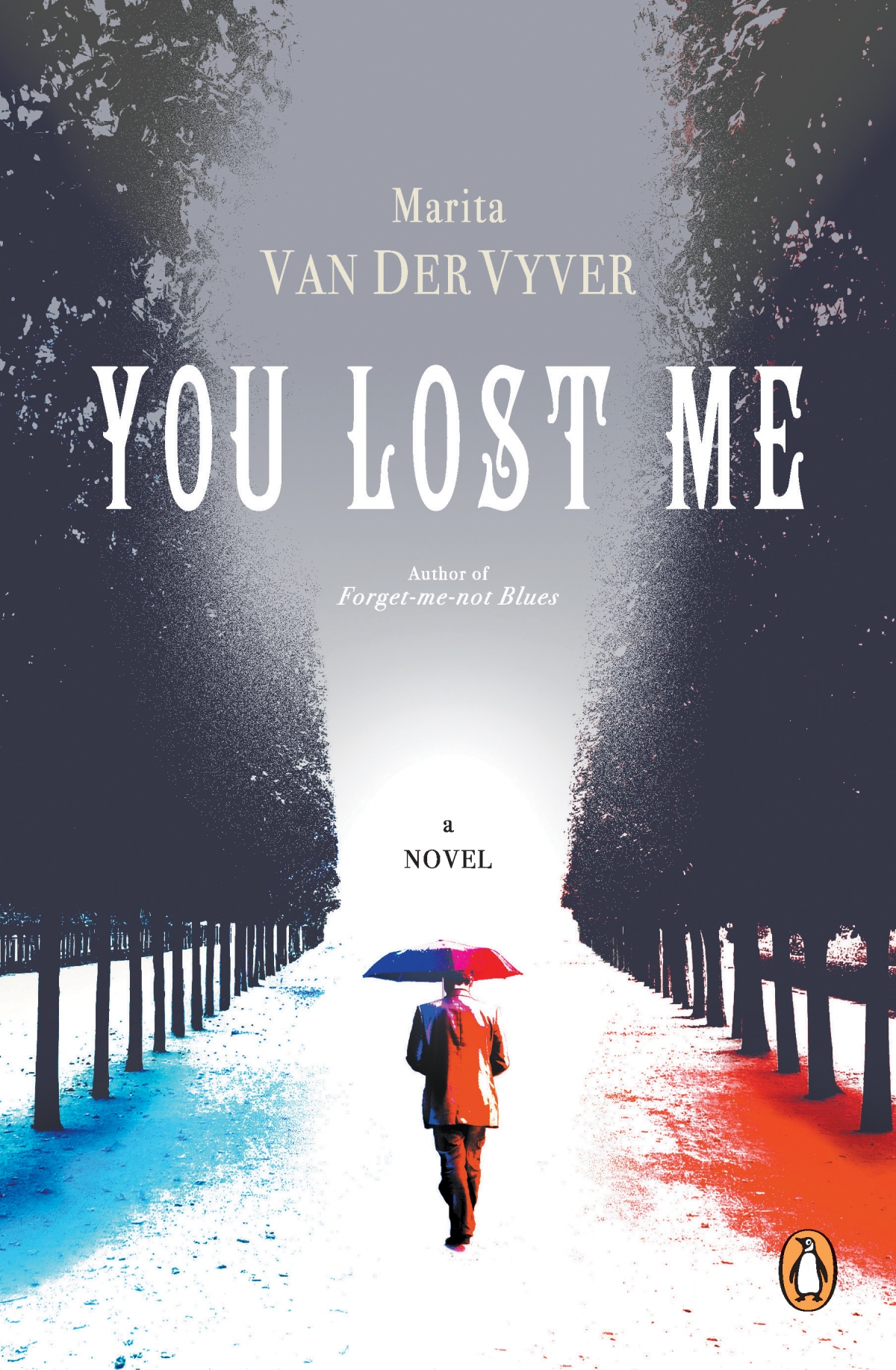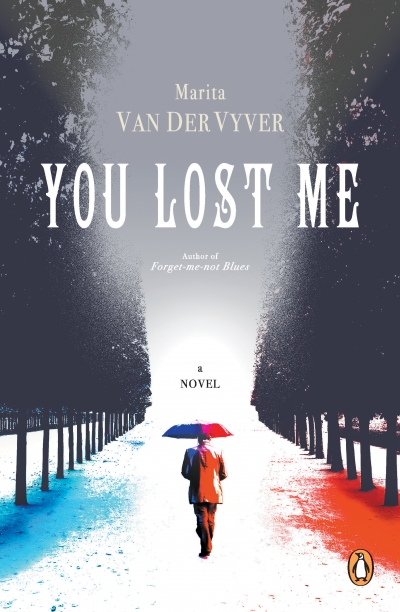Information about the book
Willem Prins wanders the streets of Paris, disillusioned and glum. Once, he showed great promise as a South African writer of distinction, but years of disappointment have left their mark. Drowning himself in the Seine may well be the only option left to drive up his book sales.
His reason for being in Paris – the French translation of an erotic novel he wrote under a pseudonym – is not exactly something to be proud of. He is no stranger to Paris. An ex-wife of his (one of three) lives in the city with his eldest son, a young man who barely knows his father.
Willem finds an unlikely companion in Jackie, a young South African working as an au pair in the city, a woman old enough to be his daughter. Together, the two of them will face the chaos of the terror attacks on Friday the thirteenth in Paris.
You Lost Me is bestselling author Marita van der Vyver’s thirteenth novel, a story about life’s thunder clouds and the bonds between us that offer shelter. It is a tale of disillusionment and loss, told with warmth and wicked humour.
EXTRACT
‘I don’t know if I want to go back … home,’ he says, without look¬ing at her. ‘I wonder if it might not be better to just disappear here in Paris.’
‘Disappear?’
‘Wipe myself off the face of the earth. When an artist disappears suddenly, his work always sells better. For a while, anyway. If he’s lucky, he could even become a legend.’
‘A dead legend,’ she says sharply.
‘Is there another kind?’ Wouldn’t it be better to be a dead legend rather than a living has-been, he asks himself as Jackie stares hard at him, her gaze so searching that he turns his head away again to look through the window.
Then she pours more wine into his glass and says without a trace of sympathy, ‘You know, if you wanted to become a legend, you should really have disappeared sooner. It would’ve worked better if you’d done it in your thirties.’
‘Back then I hadn’t yet written enough books to flog after my death. Back then I still believed I would become world-famous in my own lifetime.’
‘And now you want to become world-famous by jumping into the Seine.’
‘No, the Seine won’t work for me. I’m a damn good swimmer – the only sport I ever excelled at.’
‘The water is so cold this time of year, you might have a heart at¬tack when you jump in, then it would all be over quickly. Or aren’t you old enough for a heart attack?’
‘Stop making fun of my age,’ he says, feigning injury. ‘And forget about the Seine. I’ll have to find another way to do it.’
‘You could always jump off a building.’
‘I’ve thought about that, but Paris just isn’t New York; it’s quite hard to find a tall building in the city centre. The apartment where I’m stay¬ing has only five floors, and almost none of the old Haussmann build¬ings has more than seven.’
‘What about the roof of Galeries Lafayette? It’s higher than the rest, and of course there’s a restaurant up there, so you could enjoy a last meal as well.’
He knows what she’s doing. He seems to recall that there’s even a psychological term for this sort of shock tactic. If someone makes empty suicide threats to evoke sympathy, you agree, just to see how they react. I may be getting drunk, Willem thinks, but at least I’m not stupid.
‘I can’t jump from the roof of a shop, Jackie,’ he observes drily. ‘It’s too commercial.’
‘Well, you’re doing it for commercial reasons, aren’t you? To sell more books?’
‘No, it’s more complicated than that. It’s to let my name live on … make my children proud … something like that.’
‘Ah. Well, then, what about the Eiffel Tower? Maybe it would become known as the Prins Tower in the future? After all, Gustave Eiffel only designed it. If Willem Prins wanted to use it to leap to a glorious death—’
‘All the jumping spots were fenced off years ago,’ he says just to in¬terrupt her torrent of sarcasm.
‘Then your only option is La Défense. There you could pick and choose from all the skyscrapers.’
‘No, hell, I’ve always thought it was the ugliest neighbourhood in Paris. I might as well go do it in Johannesburg … I have something more poetic in mind.’
‘Oh, you’re looking for a poetic ending! So why don’t you jump in front of a train, you know, like Anna Karenina?’
‘Wouldn’t that be a bit traumatic for all the innocent bystanders?’
‘Hmm. Do you have a gas oven where you’re staying?’
‘Just a microwave.’
‘Big enough to shove your head inside and make it explode?’
He stares at her in shock – until he remembers that he decided not to be shocked – and grabs his glass to drink some more.
‘I guess I could slit my wrists, but I don’t think the knives in the apartment are sharp enough. And it would be awfully discourteous to the people who were kind enough to let me borrow the place. Spilling blood all over everything.’
‘Go buy a sharp knife and do it in the bath. Like in Last Tango in Paris. Perhaps not poetic enough, but sort of cinematic at least.’
‘There’s also no bath in the apartment, just a shower. And a knife in the shower would seem more Psycho than Last Tango … What’s so funny?’
‘I’ve suddenly thought of that poem by Dorothy Parker,’ she says, rocking with laughter. ‘The one about guns not being lawful and gas smelling awful, so you might as well live.’
He grins and gulps down the rest of his wine, looking back out into the street where the lights have just been switched on. Dusk. That old word. He can’t remember when last he felt so lost. Here he is on a Friday night in Paris, vaguely horny for a woman who is young enough to be his daughter, terminally sad over another woman he will never see again. How did he end up here, he wonders, how the hell did this happen? And would it have been different if he hadn’t let Lana slip away?
‘Sometimes life is so fucking sad,’ Jackie says with a sigh, and drains her glass too.
‘Fucking sad,’ he repeats, with an impossible desire to stroke her wild hair, because she is hopelessly too young to understand his kind of quiet despair.
_________________________________________________________________________________________________
 |
by Marita van der Vyver
|
_________________________________________________________________________________________________


